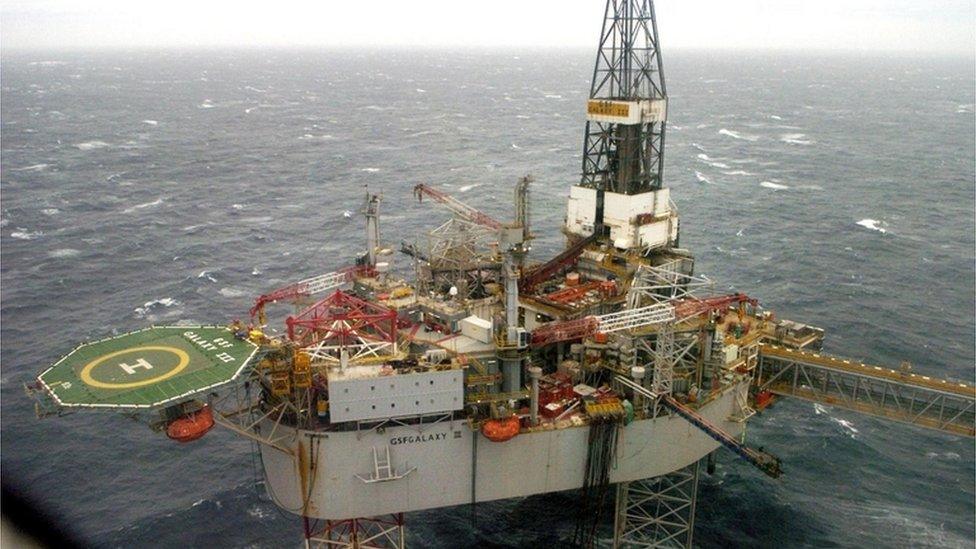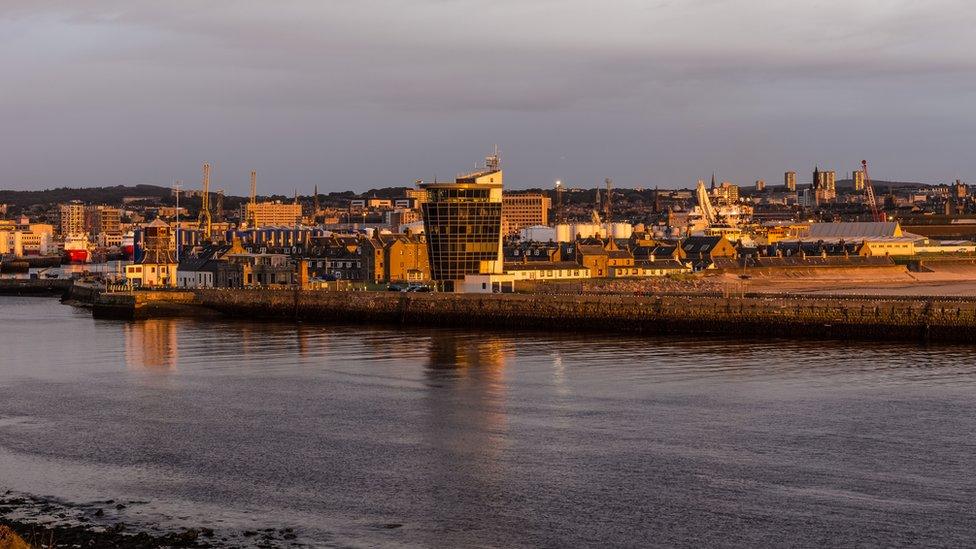The oil barons' revolution
- Published

You know something's really badly wrong with North Sea oil and gas, when the people who control it are calling for their own overthrow.
The leaders are looking for leadership. Though fiercely competitive, they are asking someone to arrange for their collaboration.
These are business people asking for government to take over their assets.
This follows months of bad news in which we risk becoming inured to the job losses, pay cuts, slashed investment budgets, and the sale or transfer of distressed assets.
With the price of oil falling from $115 per barrel to below $30 in the past two years (it is currently about $50) we should also know the main reason.
We're reassured that the industry has booms and busts, and things should come right again.
Giant joint venture
But the list of complaints, warnings and proposals from the anonymously-interviewed 47 oil industry figures behind the new PwC report Sea Change is genuinely astonishing.
It can hardly be a comprehensive list of industry figures, but it ought to be an illuminating guide to thinking at senior levels.

They warn there are only around two years to save the industry from a rapid decline, giving it a new lease of life for a decade or two.
To get there, they suggest that resources should be pooled in a gigantic joint venture between offshore operators.
By having one humongous offshore operator, they would effectively get rid of the competition which is their life blood.
They suggest the same for finance, saying the lack of lender confidence is the biggest blockage they face. Effectively, big firms would provide funding for small ones, to do what small ones do better, and maybe the banks would be attracted by de-risking.
Shared pipelines
You'd expect business leaders to tell government to get out of their way. But in this case, they are asking for more intervention from government; more co-ordination and more direction.
Because they can't get to an agreement on how to share privately owned pipeline networks, they suggest these should be handed over to a third party company that treats all users of the pipelines equally and fairly.
And if that doesn't work, one suggestion is that these assets should be taken over by the state. That's right: a call for nationalisation.

The UK oil and gas sector has been hit hard by the sustained fall in the price of oil
They want a government plan that lets the oil and gas industry set a course for a low-carbon future. In other words "please tell us how and when you intend to put us out of business".
And the pleas to government go on: please help with finance guarantees for decommissioning, so that smaller companies can move in as oil fields empty.
They are better placed to squeeze the last drops out of subsea reservoirs, but cannot get the finance to do so while they face any risk of multi-billion pound bills for scrappage.
Better behaviour
They want the new regulator, the Oil and Gas Authority, to get tougher with them. They like what it's done, but don't think it's done enough.
"Be firm with us," they're saying. The clue is in the name: "Use your authority to get us to behave better."
And when these leaders say they want a leader, they look at the auto industry, and see a sector that hit crisis point and then successfully turned itself around.
Despite being one of the the most resourceful and innovative sectors, these offshore industry figures say they might need an outsider to come in and challenge their old ways of thinking.
Sea Change
There was a clear call for that from Sir Ian Wood, when he produced his February 2014 report for the UK government on Maximising Economic Recovery.
The implications of that was a huge change in relations between oil sector firms and with government and regulators.
For the first time, it recognised that the interests of companies and government were no longer aligned.
Since then, the tax rates have been cut. Industry costs are being sharply reduced. The new regulator started regulating a year ago.
But if the Sea Change report is a fair representation of views in 2016, the change in culture and business climate has not gone nearly far enough.
Recognising that much may, in itself, be an important part of finding answer to the problem.
They recognise the depth of the challenge they face: they demand change that would overturn the regime by which they have succeeded: and that way, they might find a solution.